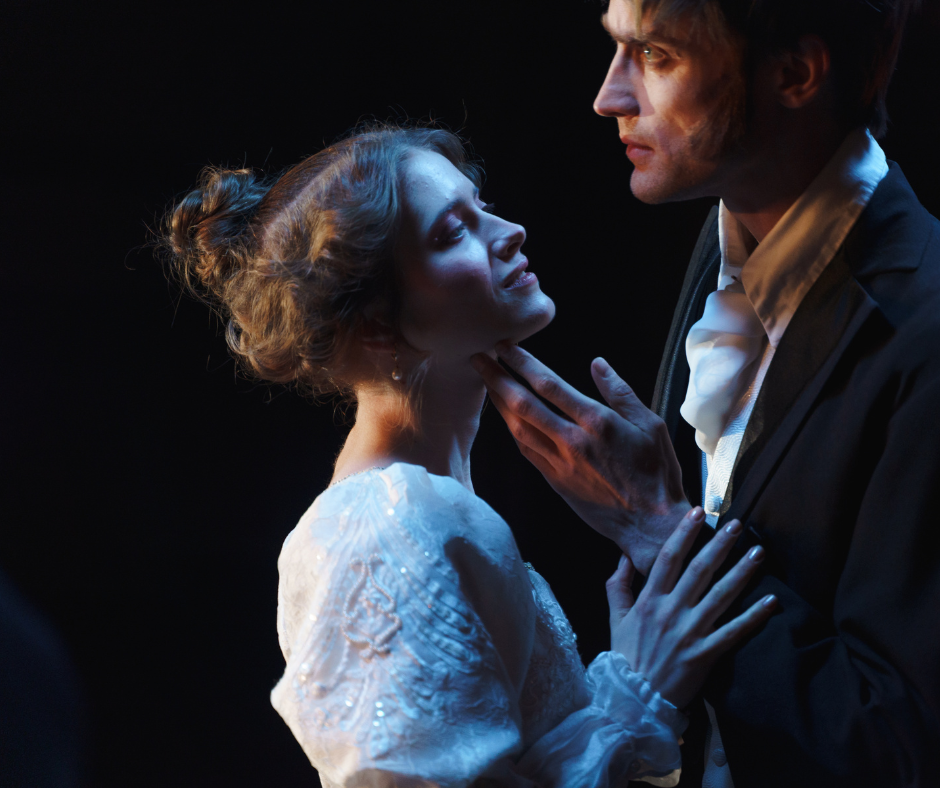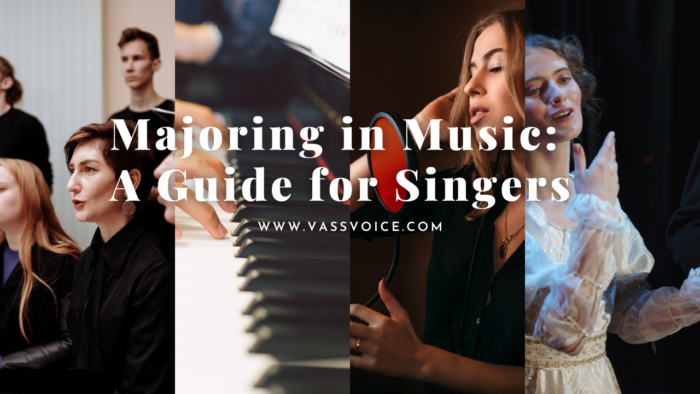Majoring in music can be confusing for singers. With so many options out there, it can be really difficult to figure out which actual major is the right one to feed your passion for singing. Let’s start out by identifying the four basic categories of degrees that work well for singers – Vocal Performance, Pop and Commercial/Music Industry/Music Production, Jazz and Musical Theatre Majors.
Majoring in Music with an emphasis in Vocal Performance

This is primarily a classical music degree. These programs can be under the B.A. (Bachelor of Arts) or B.M. (Bachelor of Music) umbrella. Vocal Performance is the most common major for singers. In these program you will study core music curricula – Music History, Music Theory and Musicianship. You will also be required to sing in an ensemble (choir) and take private voice lessons. Your repertoire will likely consist of Art Song, Opera, and Oratorio with a dash of Musical Theatre for some. You may perform in Operas or Opera Scenes. You will have to sing at least one solo recital by the end of your undergraduate program. Some programs require a Junior and a Senior Recital. The B.A. programs are more broad and include an emphasis on classes OUTSIDE your music major. The B.M. is more specialized and requires a more music focused in-depth training program. Singers who graduate with a degree in Vocal Performance may choose to teach private voice lessons or audition for singing opportunities after they graduate. The vast majority of serious classical singers will go on to graduate school to continue to train for a career (with the ultimate goal of singing for an Opera Company or Professional Choir).
Majoring in Music for Pop and Commercial Singers

If you like to write your own music and want to launch a career as a solo artist, this is the route you want to take. Most colleges and universities do not have Commercial Music Majors. Though this is changing by the year. As more and more schools see students who are seeking this major, new programs are popping up every year. For my contemporary artists, I usually encourage programs that are geared toward contemporary genres. For entrepreneurial singers, I suggest the Music Industry Degree. This teaches young singers the business side of the industry. It often helps them make valuable connections. It focuses on the practical side of launching a solo music career. If a singer is technically minded, I encourage them to consider the Music Production Major. This course allows them to understand the mechanical/engineering side of making music. It gives singers the skills they need to produce their own music. For those who are not interested in the business or technical sides of music, there are a handful of commercial and contemporary music programs out there that are worth auditioning for. The performance-based programs are often challenging to get into, but worth a shot if you really want to go that route. With any of these programs, you will have to study the basics of music – Theory, History, Musicianship. You may also be expected to participate in a musical ensemble. After all, these are Music Majors.
Majoring in Theatre: the Musical Theatre Route

This one is often not as closely aligned with Music programs as they are with Theatre departments. From time to time, you will find a Musical Theatre program that does have a strong emphasis on Music. However, most are geared toward acting. The best programs will have several mainstage productions that you can be involved in each year. Highly reputable Musical Theatre Programs will also require a lot of dance. For most Musical Theatre Programs, you will need to take private voice lessons. That is often the extent of your musical requirement. Most do not require foundational music classes. If you go this route, you may want to consider taking sight reading classes to supplement the music requirements.
Vocal Performance with an emphasis in Jazz Studies
Jazz studies programs have been around for decades. While the vocal music programs in many jazz departments are not as popular as the instrumental music programs, they are still worth investigating. If you are excited by the Jazz repertoire and have a talent for improvisation, consider looking into a Jazz Studies degree in voice.
New Opportunities for Singers Majoring in Music
As with contemporary music, some schools are working to expand their offerings to more singers. A new trend is the Worship Music Major. This is a great option for singers who want to go into contemporary worship leading as a career. Sacred Music has been an established field for over a hundred years. This newer iteration plays off the need to fill church ministry positions in congregations that prefer a more pop-oriented service (think Hillsong United or Bethel Music).
All these options for singers majoring in music can be quite overwhelming. If you are a singer or a parent of a potential college student who wants to pursue one of these paths, consider finding a reputable voice teacher. The best ones are not only great at teaching vocal technique, they are fantastic mentors. A good voice teacher can get you organized and prepare you to take that next step toward a degree in Music.
For more on this topic, check out the masterYOURvoice podcast episode, College Majors for Singers.
***********************************************************************
If you are looking for a successful voice teacher who can mentor you through the college audition process, reach out to Heidi Vass. She’s successfully coached hundreds of singers into their ideal music programs. Let her help you. Schedule a consultation lesson today. You can take lessons in her Thousand Oaks, CA studio or Online from anywhere.

